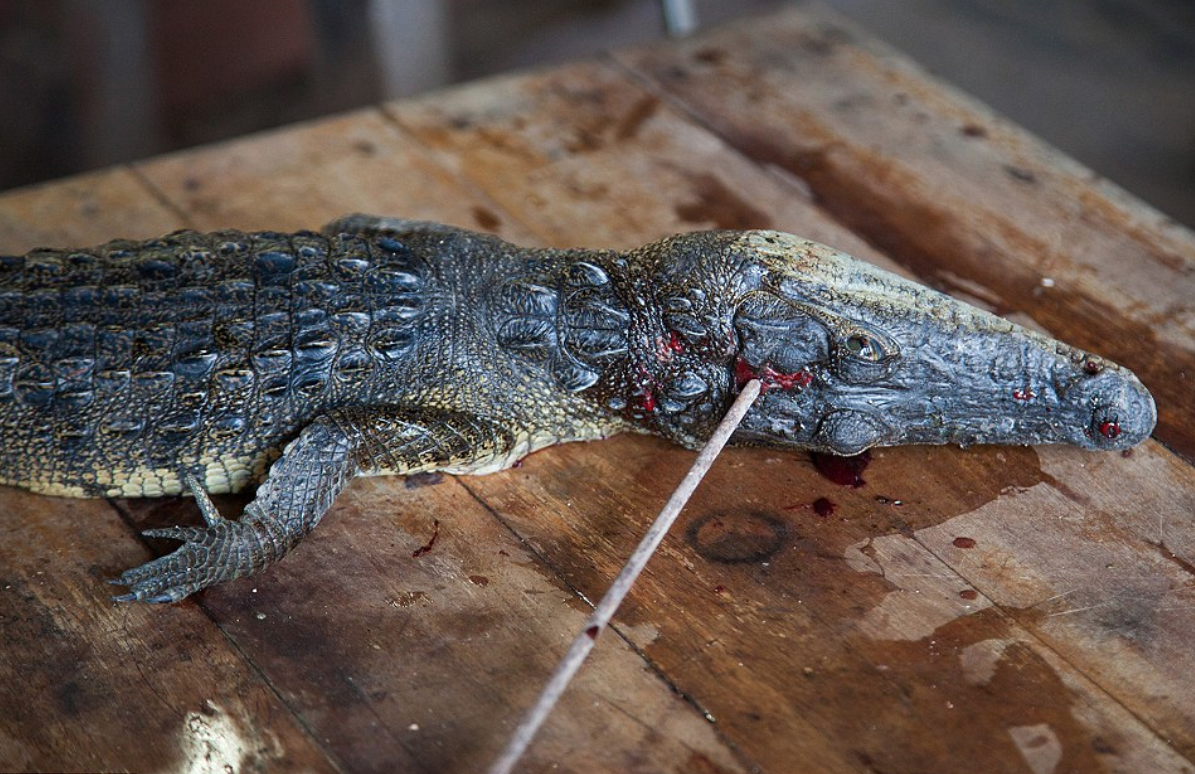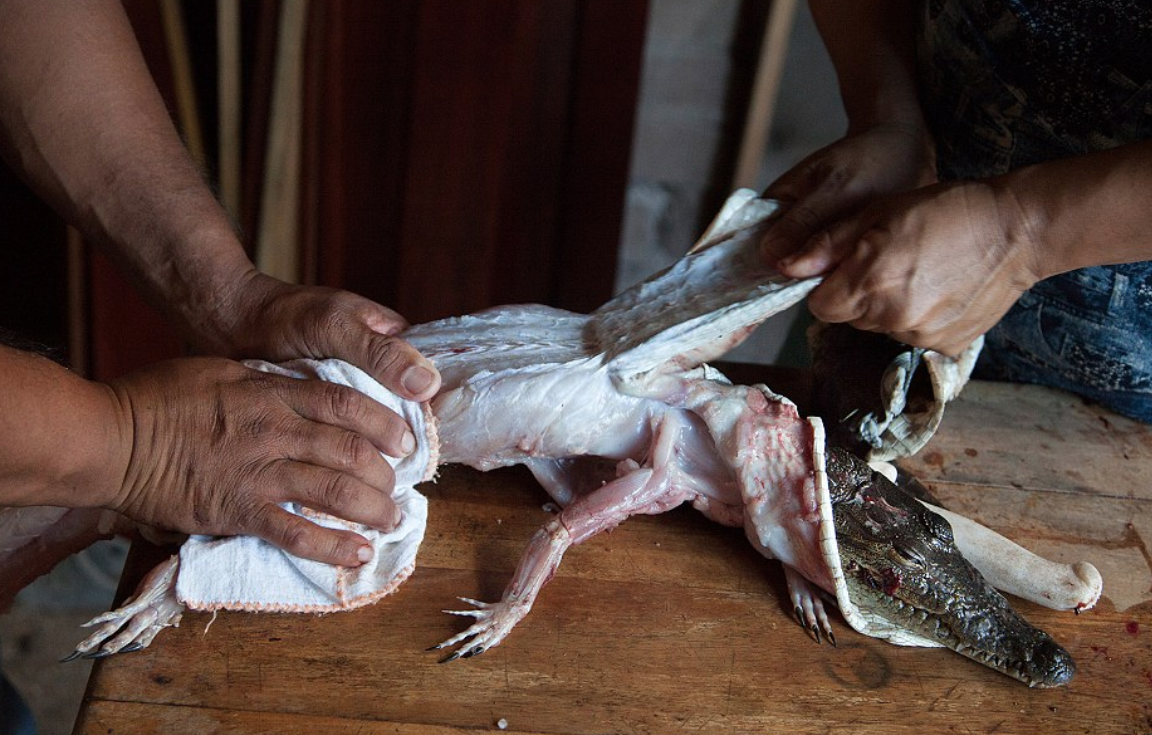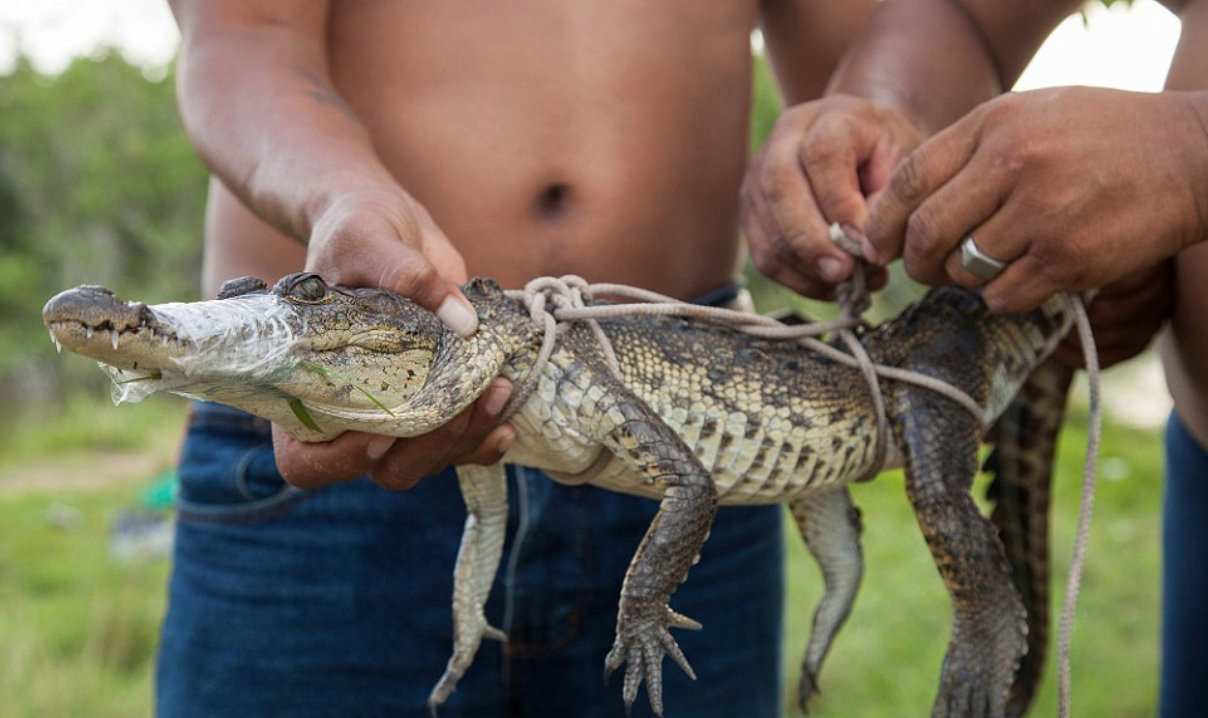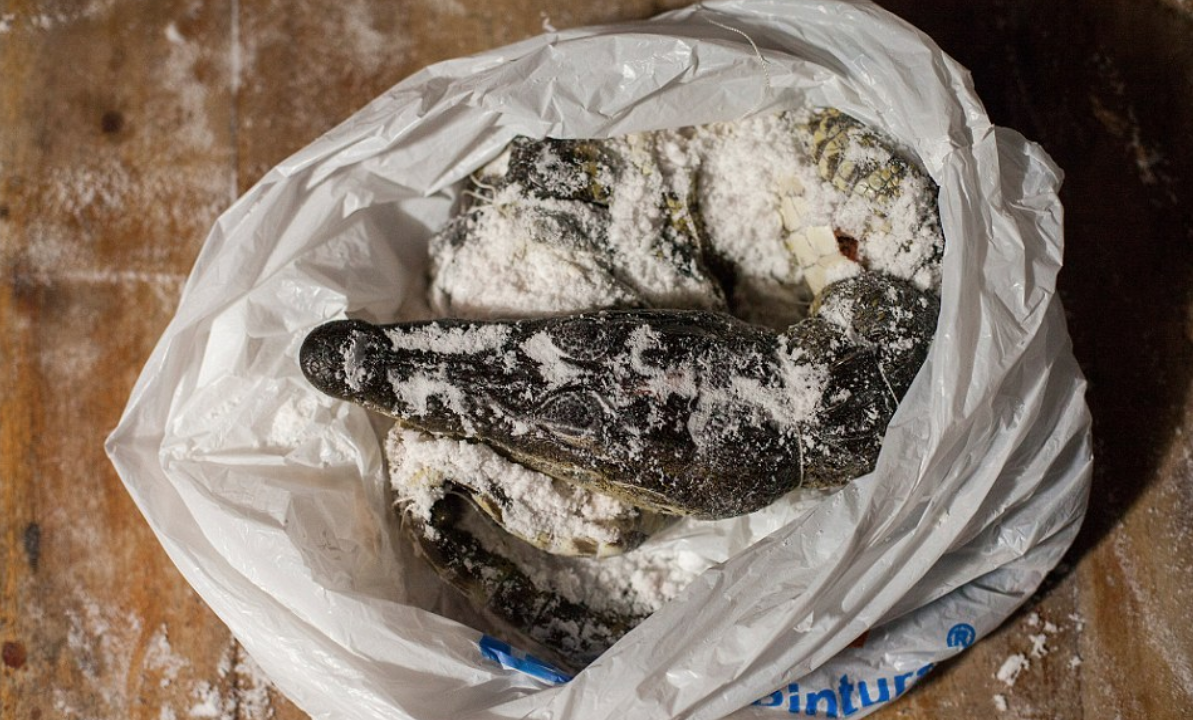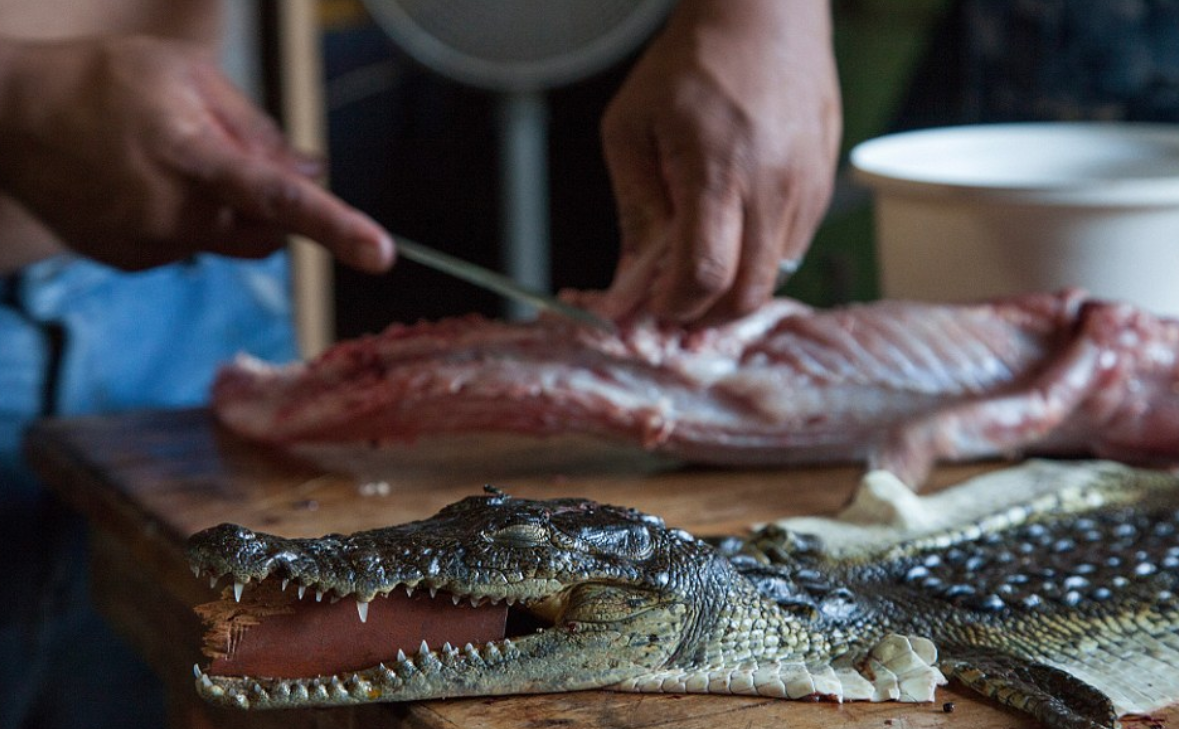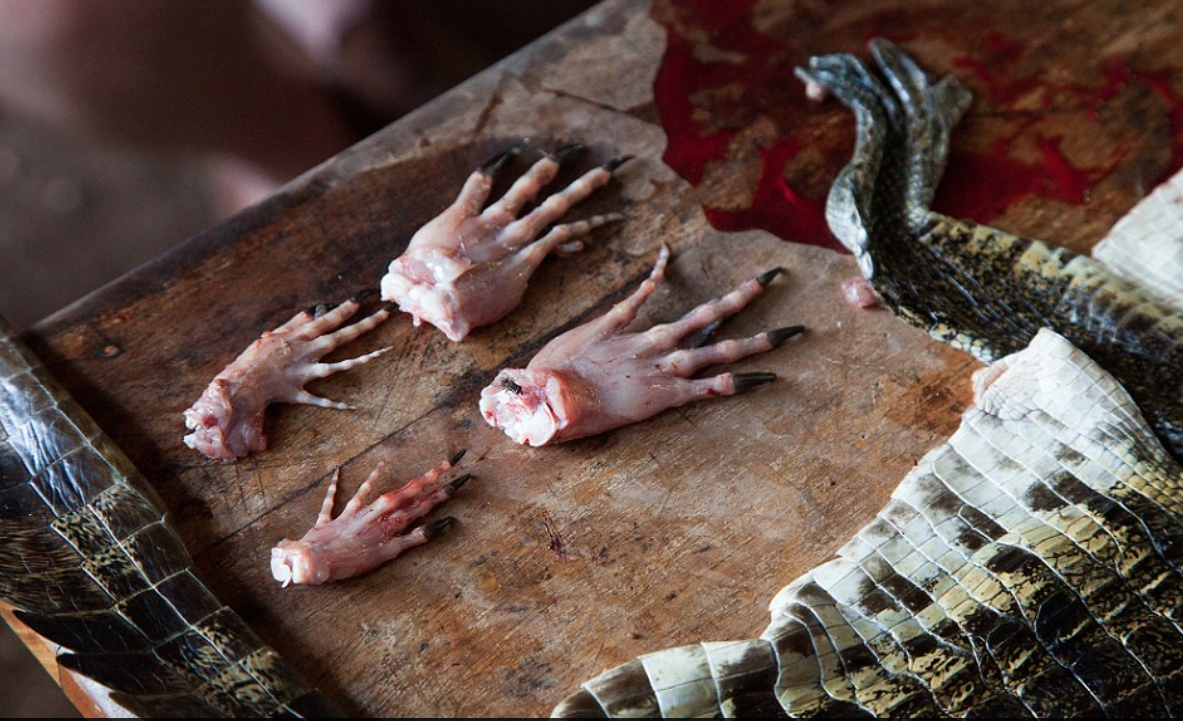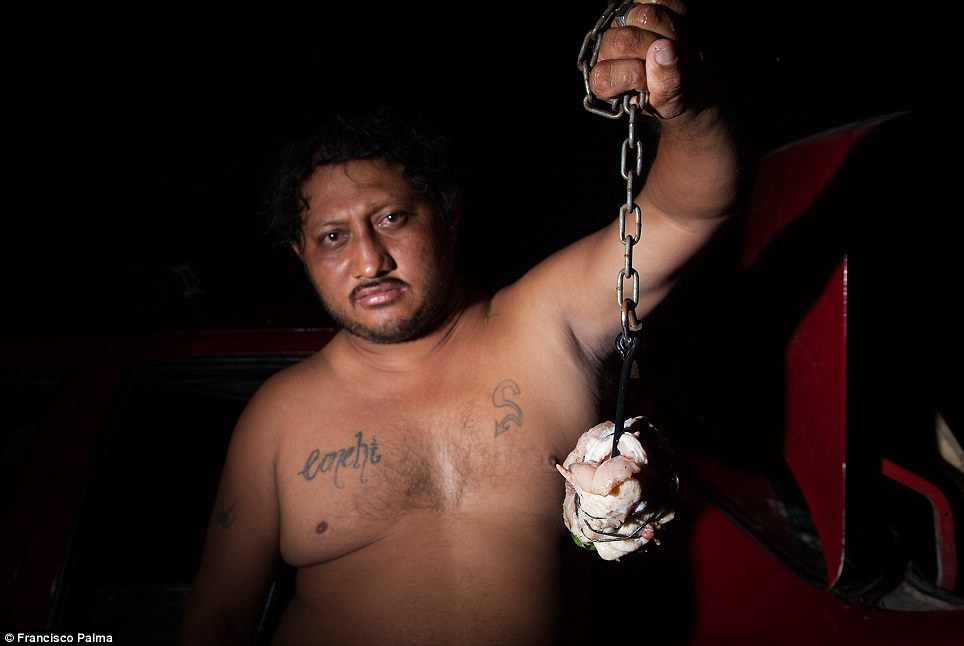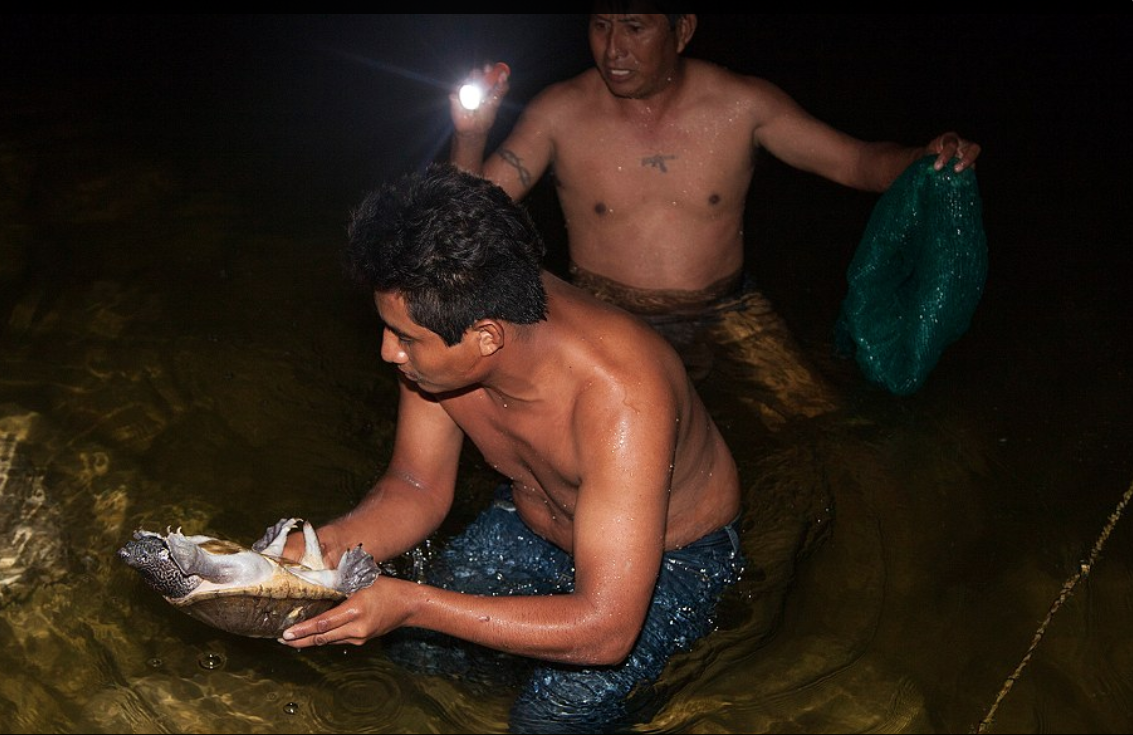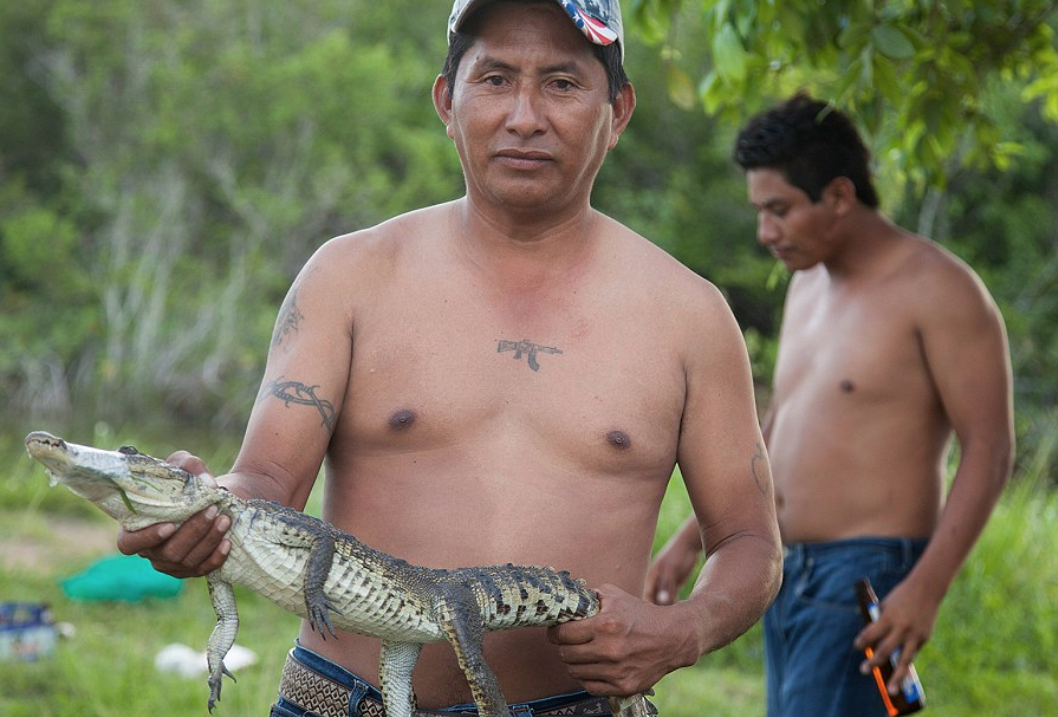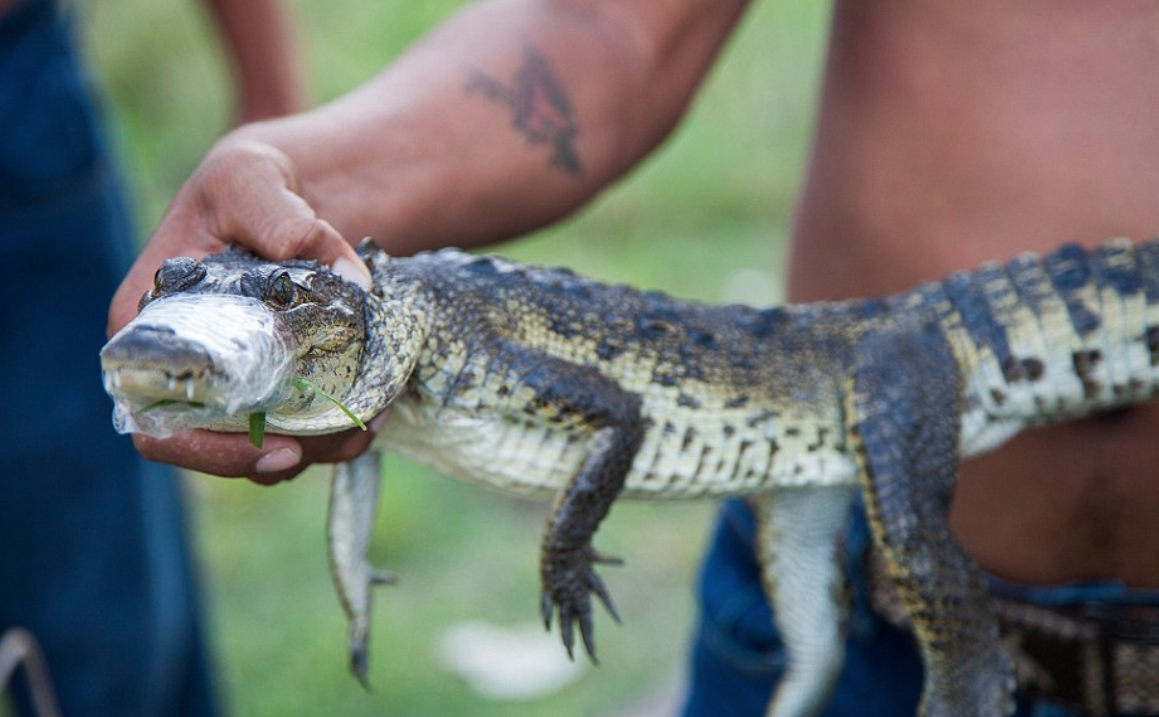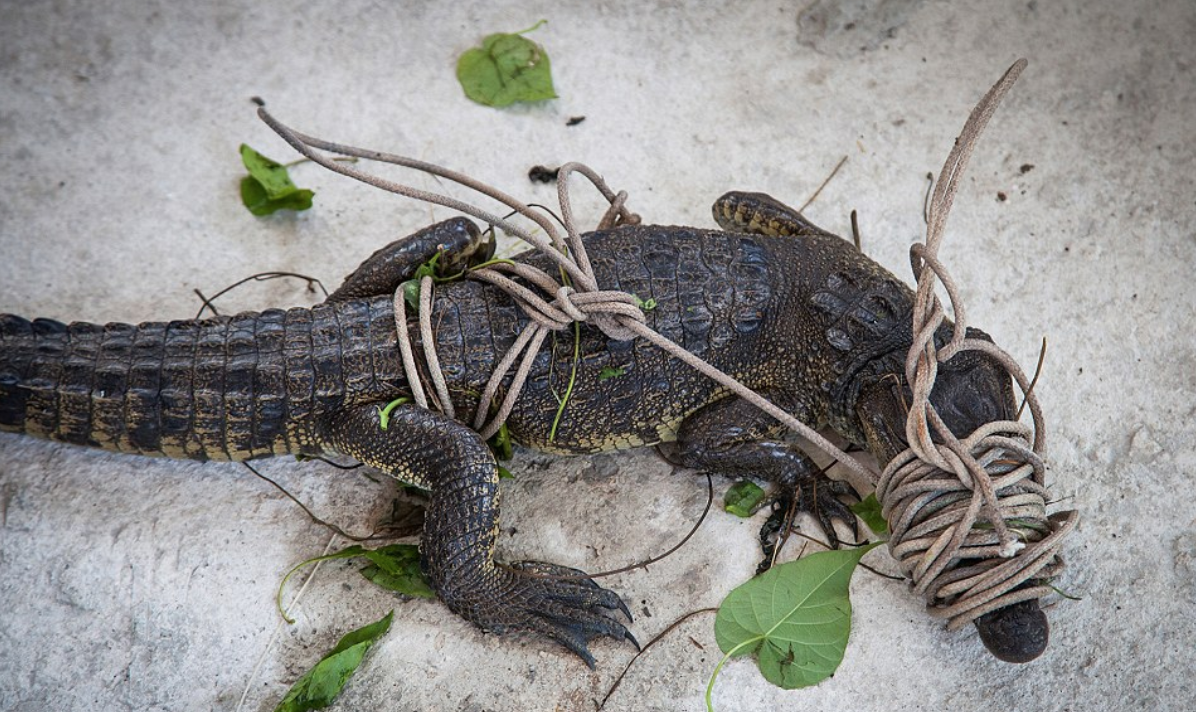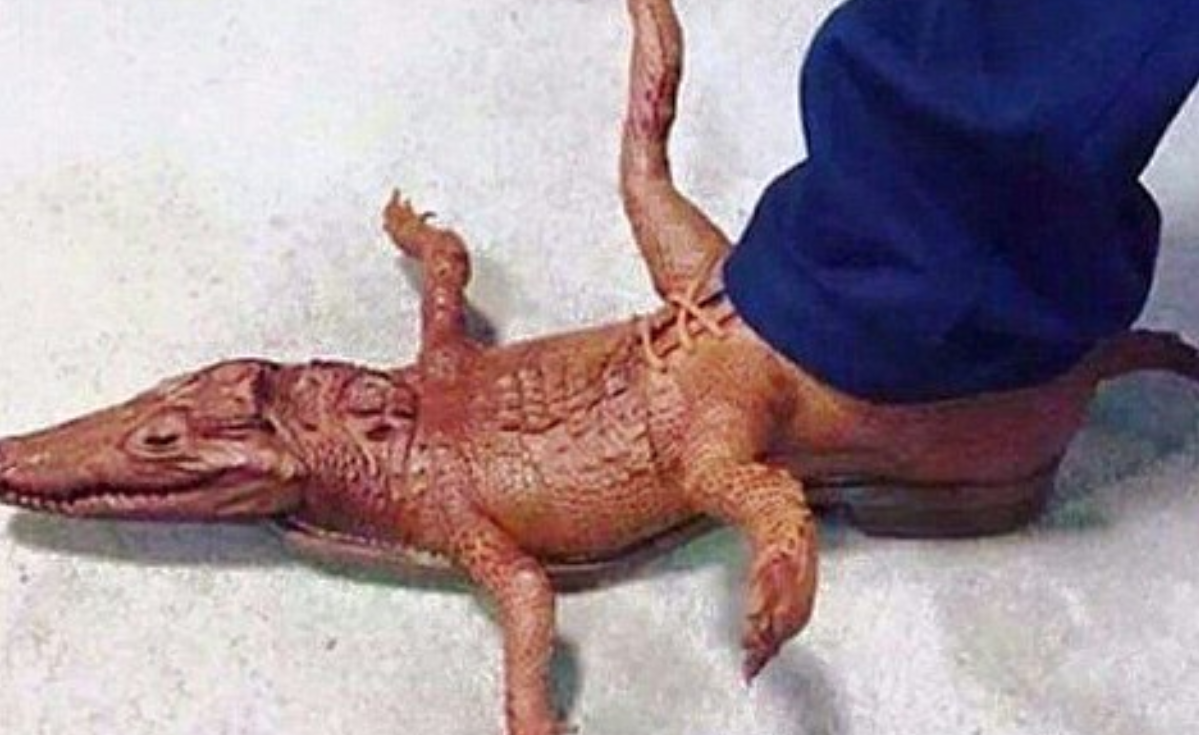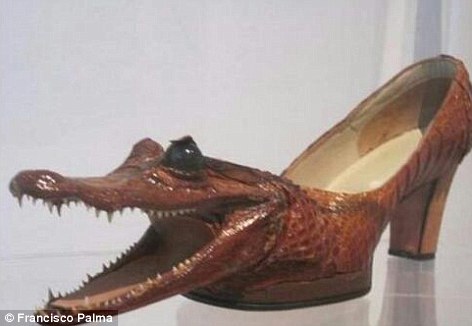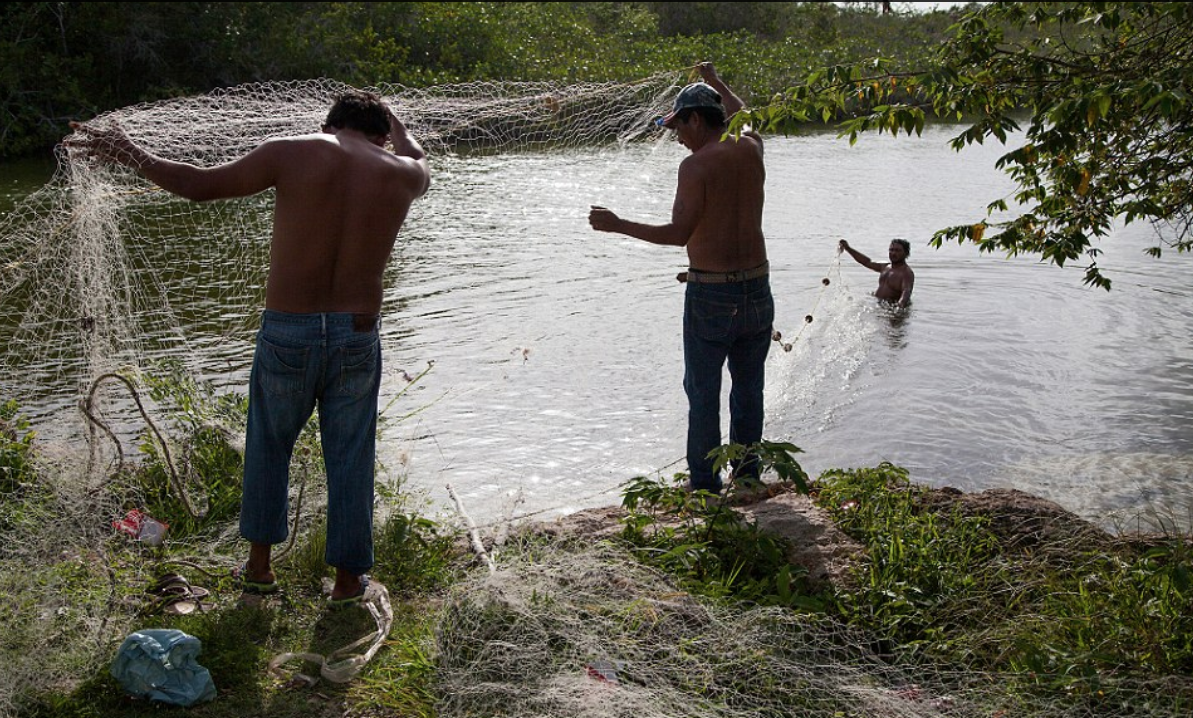Crocodile Hunters
Deep in the Mexican jungle, crocodiles are lured into traps, beaten with machetes and skinned alive – to feed fashion's insatiable demand for luxury leather shoes and handbags.
Tens of thousands are slaughtered every year, hunted by villagers of the Yacatan Peninsula, who sell their skins for £7 a square centimetre or £500 per crocodile.
The thriving, multimillion pound black market is part of a network which stretches from the zoos of North America to the traditional doctors in China and fashion houses in Italy.
But it is a dangerous career - and one which can lead to decades behind bars for those caught pulling their wares from the rivers.
MailOnline went on a hunt with the poachers who go under the cover of darkness armed with nets and bait to snare crocodiles from Mexico’s rivers.
The baby crocodile snapped viciously and thrashed around in the water to free itself from the snare.
Trapped in the net, its flashing green eyes widened and powerful tail flailed frantically as the man raised a bludgeon above its head.
‘You have to get the crocodiles first, no matter how big they are,' said one of the poachers. ‘Those jaws can break a net just as easily as they can remove your arm.'
Two blows of a heavy club rained and the poacher emerged from the river with his hands clamped tightly around the croc’s snarling jaws.
This is the true, horrifying world of Mexico’s black market crocodile trade, which is so lucrative more than 100,000 are illegally hunted and sold every year throughout the Yucatan Peninsula, Belize and Guatemala.
‘We keep crocodiles alive for buyers, but kill turtles straight away’, said ‘El Cuerno’, as he taped the crocodile’s jaws shut and threw it in the boot of his car. ‘Turtles are most valued for their thick blood, which is better while it’s fresh. Besides, you have no idea how long it takes for a turtle to die.'
Illegal hunting of protected species is a federal crime in Mexico, punishable with up to 15 years in prison, yet the penalties have done little to deter traffickers who capture and sell crocodiles, jaguars, pumas, panthers, snakes, turtles and other animals that live on the western Caribbean.
‘Do you have any idea how long I would go to prison if a policeman walked past right now?’ a trafficker told MailOnline as he tore the leather from a crocodile carcass.
‘I wouldn’t ever come home - but this skin will be worth enough for my family to eat for a month,' he said as the still alive animal writhed in agony while its skin was torn from its flesh.
‘I take the risk because of the huge demand for Mexican crocodile leather, and I sell to anyone.'
Cured leather of a Mexican crocodile sells for £7 per square centimetre, and the skin of a mature reptile sells for up to £500 on the black market.
Crocodile meat contains no fat or cholesterol, its rendered fat is curative in the local Mayan culture, and its bones and teeth are highly sought in traditional Chinese medicine.
‘There’s lots of money to be made, but you have to be able to defend yourself,' said the trafficker, showing his automatic rifle. ‘My only chance of justifying this is to say I need the animal’s oil for medicinal purposes.'
Crocodile hunts are conducted under the cover of darkness with a wide net spread across the width of a remote river and raw meat used as bait.
‘The fish get caught in the net and the crocs follow them in,' said hunter El Cuerno
As night fell, the hunters began to call out to their prey through the pitch darkness of the tropical river.
Cupping their hands over their mouths, they imitated the low guttural hissing of the crocodiles and slapped the surface of the river with branches cut from trees, imitating their posturing war dance of pounding the water’s surface with their powerful tails.
The reptiles quickly replied with spine-chilling hissing through the black night from all sides.
‘Now the hunt begins,' said El Cuerno.
‘Crocodiles have no tongues and don’t chew, they just swallow everything,' said one hunter, as he skewered raw chicken on his hunting hook.
‘They are furious and dangerous when caught in a net, and come easier with a big hook in their belly.'
Despite crocodiles being a species of ‘least concern’ on the endangered species list, Mexico’s environmental police PROFEPA rigorously prevents illegal hunting.
‘Crocodile poachers have done a great amount of damage to our ecosystems,' said biologist Dr Gualberto Pacheco.
‘Threats of prison aren’t enough to stop the poverty-stricken locals from hunting these animals.
‘While there’s a demand in the market, there will always be those who are willing to break the law.'
Known as ‘El Cuerno’, the crocodile hunt leader has been involved in exotic animal trafficking for over 15 years and estimates he has caught and sold more than 5,000 crocodiles.
‘On good days we can catch up to nine big animals’,' he told MailOnline. ‘But we must be constantly vigilant as the authorities know the places we hunt.'
By 2am they had a large haul of crocodiles and turtles, which they planned to sell at a well-known black market spot in Chetumal.
‘We will make good money selling what we caught today,' said El Cuerno.
‘The only other available work around here is trafficking and dealing drugs. At least this way I get to be close to Mother Nature.'


